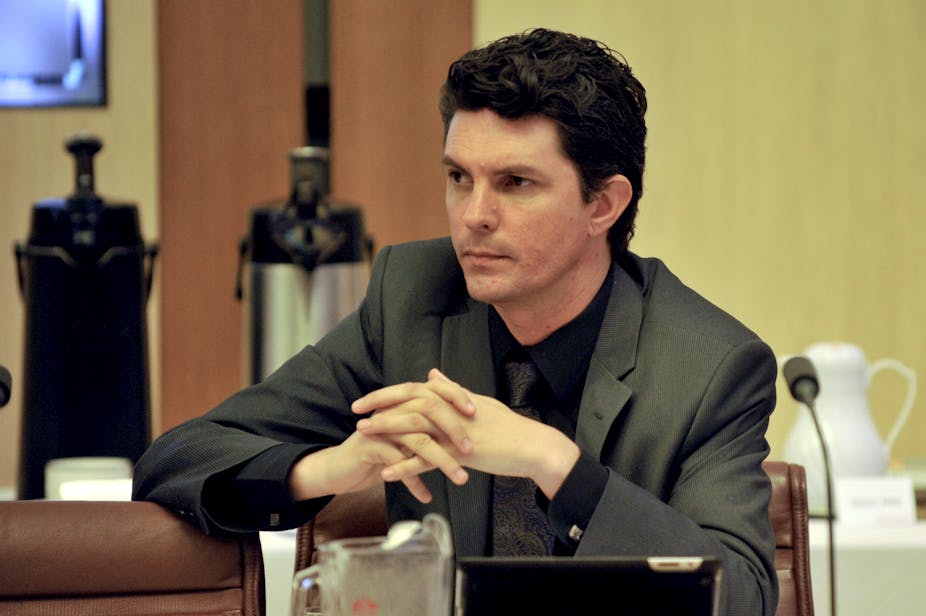The Australian Electoral Commission (AEC) will officially declare the result of the full recount of the Western Australian Senate vote today. Scott Ludlam from the Australian Greens and Wayne Dropulich from the Australian Sports Party have been triumphant in the recount, while the ALP’s Louise Pratt and Zhenya Wang from the Palmer United Party (PUP) had their election voided.
The AEC’s declaration of the result from the recount is by no means the end of this saga. Over 1300 votes went missing during the recount and could not be located, so it now seems inevitable that the recount will be the subject of an appeal to the High Court, which is empowered to hear any such petition in its capacity as the Court of Disputed Returns.
While the victors were gratified by the outcome, the vanquished were understandably frustrated. Pratt said that she was “deeply disappointed” by developments, while PUP founder Clive Palmer openly rejected the result, arguing that:
The original count should stand, as it is the only count where we’ve had a full count of all votes.
The procedure for appealing an election result is located in the Commonwealth Electoral Act. An appeal can be lodged if there are concerns of an illegal act or practice having interfered with the election, questions about the eligibility of a candidate, or a belief that there has been a failure of compliance in relation to the act. An appeal can be brought by any of the candidates, any elector qualified to vote at that election or the AEC.
In this case, the basis of the appeal will likely centre on concerns about the integrity and reliability of the recount. The fact that over 1300 ballot papers were omitted from the recount will make this a fairly easy case for litigants to prosecute.
It is difficult to predict how the Court of Disputed Returns might find in this matter because we do not have a similar case against which to compare this situation. Appeals are not especially frequent, most are brought against divisional results in the House of Representatives and many of the petitions are ultimately dismissed. But the particular circumstances of this case increase the prospects of the Court ordering a new half senate election.
If it a fresh election is held, it will not be without challenges.
It will be important that a new election is held in a timely manner. There will be a myriad of legal and practical matters that will have to be attended to before the Senate by-election can proceed, all of which will take some time to work through. ABC electoral expert Antony Green believes that in order for incoming WA senators to take their seats by July 1, 2014 (when the new Senate will be sworn in), the latest possible date for a new election is late May 2014.
There is, of course, a fairly hefty price tag attached with holding a new election. According to one estimate, a fresh election has the potential to cost upwards of $A11 million.
A new Senate election is also very likely to produce a much lower turnout. Most voters resent being recalled to the ballot box for a by-election and many respond by staying away on polling day.
The problem of electoral fatigue is likely to be particularly heightened because WA voters have faced state and local government elections this year, in addition to the federal poll.
To the extent that turnout at House of Representatives by-elections is any kind of reliable gauge, then expect the level of participation to plummet to around 78-80% of eligible voters on the roll, well short of the 90-95% for standard elections. A lower-than-usual turnout can provide ready ammunition for disaffected candidates to cast aspersions on the legitimacy of the outcome.

There is no guarantee that a fresh Senate election will not produce a similarly tight election outcome. It is possible that the publicity garnered by microparties at the 2013 election might embolden even more candidates and groups to nominate for the Senate. If this were to occur, and similarly convoluted preference agreements were negotiated between parties, then Western Australia may very well find itself in much the same position as it did at the conclusion of the first count.
There is no doubt that the revelation of the missing ballot papers has brought unfavourable attention to the AEC. Some have suggested that the AEC is guilty of gross incompetence. Clive Palmer, in a fit of pique, went much further and accused the AEC of “trying to rig the election” to prevent PUP from having the balance of power in the Senate.
The idea that the AEC is somehow corrupt or profoundly incompetent is a stretch. If the AEC was really afflicted by endemic corruption than it would have been most unlikely that this matter would have been exposed publicly. The AEC was, after all, very quick to admit to its mistake in losing the votes, and called in former federal police chief commission Mick Keelty to investigate.
While Keelty’s investigation will most likely fail to uncover the whereabouts of the missing ballot papers, it will serve as a reminder that Australian elections are subject to high levels of scrutiny and rigour.

